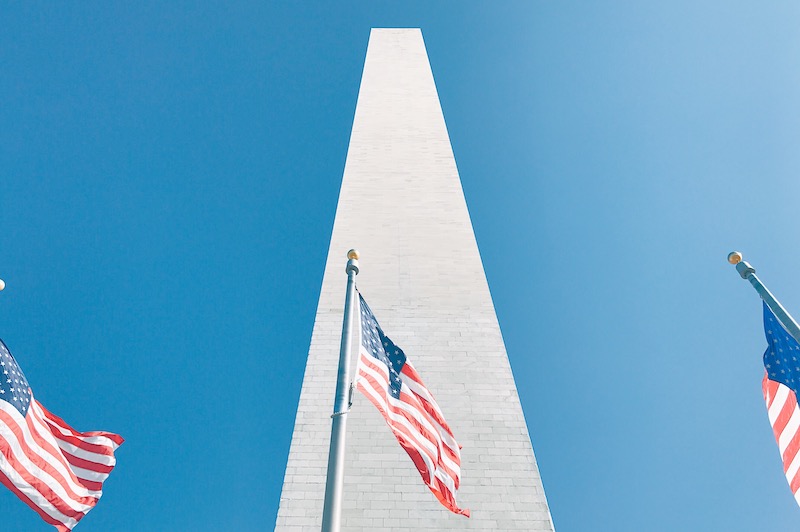In October 2019, a parish priest in South Carolina denied Joe Biden communion over Biden’s support for abortion rights, making national news. Amid the hot takes on whether priests should refuse communion on political grounds, the real question went unasked: Why are we so surprised when a church expects members to abide by its doctrine?
Biden refers to his Catholic faith as “the bedrock foundation” of his life. He frequently employs biblical language on the campaign trail. For all that, it’s conspicuous how his faith disappears on questions of abortion. Under Catholic doctrine, abortion is not an issue of individual conscience; Catholic legislators cannot be “personally pro-life” while upholding abortion in law. Yet Biden has consistently advocated pro-abortion policies during his five decades in public life. He has called for Roe v. Wade to be codified in federal law if overturned in the Supreme Court and has supported repealing the Hyde Amendment, which bans federal funding for abortion.
While Biden’s track record on abortion could fuel many a pro-life tirade, he isn’t the real problem here; it’s the church. The American political arena has become a Wild West of claims to religious fidelity, and the church has done nothing to stop it. It’s time the church held leaders who invoke the name of Christ accountable for how they vote on clear issues of church doctrine.
This is not a new challenge. The church has always struggled to find a balance between inclusivity and orthodoxy, between maintaining a big tent and drawing appropriate lines in the sand. Inclusivity and orthodoxy are both self-evident goods, but by nature they exist in tension with one another. The more the church strives for inclusion—the more it says “you can be a Christian and still . . .” —the more it must necessarily compromise on matters of belief. The early church defined the boundaries of acceptable opinion in creeds. Within the guardrails of the creeds, the church invited vigorous theological disagreement, but to fall outside the creeds was to land outside the church.
In recent years, the church has erred on the side of inclusion at the expense of orthodoxy. The most obvious culprit is the Catholic Church, where dozens of representatives and senators in Congress remain in good standing despite publicly defying church doctrine on abortion and other social issues. Although many of these heterodox politicians are Democrats, the problem is not exclusive to either party. Catholic Republican Senators Susan Collins and Lisa Murkowski have both publicly supported Roe v. Wade and legislation that furthers access to abortion. Neither has been subject to church discipline.
The Catholic Church makes for an easy target – after all, its central governance should make policing its members easier – but it is far from the only church body responsible for the lack of Christian political accountability. In 2018, the Texas gubernatorial race made headlines as Democratic candidate Andrew White ran on a platform that included defense of abortion rights and same-sex marriage. White was an elder in a conservative Presbyterian Church in America congregation, which strongly defends the right to life and traditional Christian teachings on sexuality. Although he later stepped down as elder, White was not barred from communion or subject to church discipline for advocating policy explicitly opposed to church doctrine.
You might be asking yourself, “Should we really risk politicizing the church by disciplining politicians over issues that are so controversial?” Yes. Here’s why: If the church won’t hold leaders accountable when they claim the name of Christ, who will? The church is entrusted with maintaining the sanctity of the Gospel, to not only “make disciples of all nations” but also teach “them to obey everything I have commanded you” (Matthew 28:19–20). Why, then, does it stand silent when politicians use the name of Christ as a prop?
The Bible gives precedent for publicly confronting hypocritical leaders. Galatians records that St. Peter, after initially welcoming Gentile believers in Antioch, refused to even eat with them after the arrival of the Judiazers, who taught that following Jewish ceremonial law was necessary for salvation. Paul “opposed him [Peter] to his face, because he stood condemned” (Galatians 2:11). Peter demonstrated a fear of cultural critique, which outweighed his commitment to follow Christ’s commands. To leave this issue unaddressed would damage the witness and ministry of the early church. Paul’s example demonstrates that confrontation is good for not only protecting the Gospel but also issuing a leader in sin a call to repentance.
To be clear, I am not calling on pastors to tell parishioners not to vote Democrat, nor am I saying that a Christian cannot vote Democrat and remain a member in good standing with his or her congregation. There is a difference between someone voting for Biden despite his views on abortion and Biden himself promoting abortion. I am also not necessarily saying that public policy should be shaped by Christian morality. In a democracy, that question should be decided in the voting box and, with separation of church and state, in the Supreme Court.
I am, however, calling on church leaders to stand by their doctrine when politicians claim to represent Christ on the campaign trail and then act as if they’ve never heard of him once in office. Jesus’ name should not be invoked as a platitude and then denied on the Senate floor. It’s easy to blame the politicians themselves, but the greater sin falls on the church, which bears the responsibility of maintaining the integrity of the Gospel. Jesus calls us to be salt and light, but the church loses its flavor and brightness when it fails to hold its members accountable.



